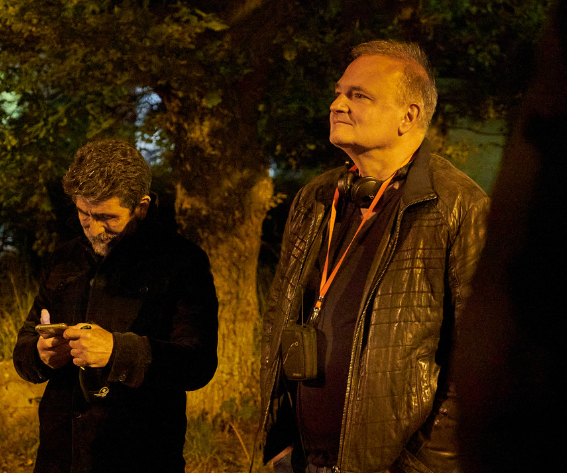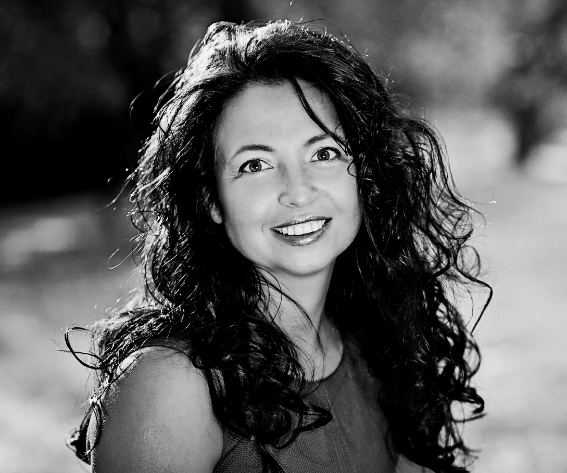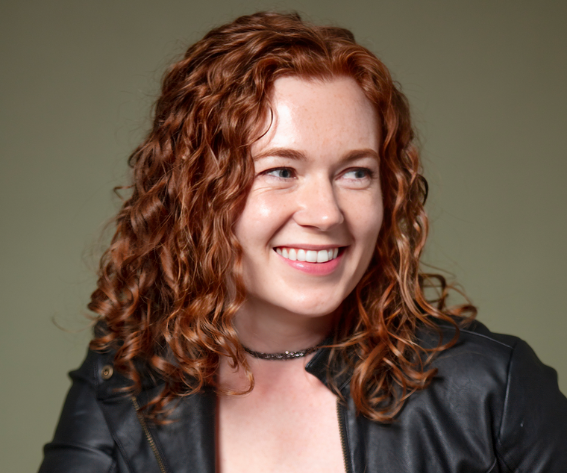2022 is still fresh, and we have our first winner of the year. January 2022 was a great month in terms of entries, and in the end, the project which came up on top was Hans Vannetelbosch’s Beau Monde. Apart from winning TMFF’s biggest prize, Hans also received the awards for Best Director and Best Screenwriter, while Koen De Graeve grabbed the Best Actor accolade. We had a quick chat with Hans about his film:
JL: Hans, our sincere congratulations for Beau Monde – all of us at TMFF really loved it. With regard to accolades at film festivals, is your project so far performing according to your expectations?
HV: First of all, I would like to thank everyone at TMFF for selecting and awarding our film. It really means a lot to us to hear the jury enjoyed it so much. So thank you very much for this recognition. The team and I are very happy with the success the film has had on the festival circuit so far. It’s never easy getting your film out there, and I think Covid and all the restrictions that come with it has made it even harder. With all this in consideration, I think we can definitely count our blessings.
JL: What inspired you to make this film, and especially to set it in a busy restaurant at dinnertime?
HV: Most of my inspiration for this film actually came from my time working as a salesman selling kitchens. A place where a lot of people, from all walks of life, come to buy their kitchens. While most customers were of course very nice and polite people coming to improve their home, you would from time to time also have to deal with the slightly richer business type of people who could sometimes be very rude. They would often have this sort of attitude to make you feel as if they were better than you somehow. Once, as I was trying to make a suggestion about the layout of someone’s kitchen, the man told me: “you’re only here to do as I tell you. Understand?” When capitalism dictates that the customer is king, don’t be surprised if some of them turn out to be dictators. It’s these kinds of encounters that fueled my inspiration to tell a story about a divide between social classes that, for some reason, still exists today. Only to tell it in a short form in a store would have been too complicated. I needed a better setting in which the divide would be more obvious. Luckily I also spend some time working as a dishwasher in a fancy restaurant. I can still remember the rush the staff had to slave through during dinner time and how the owner once got angry at me for not being able to keep up. So I put both experiences together and went out to interview about 20 people working in restaurants and bars to gather even more experiences and stories which I then molded into the script of Beau Monde.
JL: The topic of distinct social classes coexisting and interacting within the same environment, and especially without an overarching moralising tone, reminded me a lot of Bong Joon-ho’s Parasite. Did you draw anything from it, or similar productions?
HV: Ha! No, not at all, though I will gladly take the comparison as a compliment. I was actually quite late in seeing Parasite because production on Beau Monde had kept me so busy. When I finally got to see it, I remember it was during some special “encore” screening at our local arthouse cinema sometime after we had wrapped the filming of Beau Monde. Great film! Though I wouldn’t dare to compare my short with Bong Joon-ho’s Oscar-winning film, I guess it is true that both films address the same themes.
JL: You gave your characters very little screen time, and yet they were all clearly delineated, their situations richly explored, and their respective contexts and interactions coming off as very layered. How do you make the most of this constraint, and ensure that each scene ‘speaks’ to the audience?
HV: My editing teacher always talked about “cutting off the fat” by which he meant you always had to try to go to essence as fast as possible. I think I might have taken those notes to the way I wrote Beau Monde. You don’t need to hear the whole conversation or even the whole story behind it—just the essence. Or even just a hint of it might already be enough. Never underestimate your audience. Clint Eastwood once said that the biggest mistake you can make as a director is to think that your viewers aren’t smart enough to get it. They are. All of us go through dozens of conversations each day, and we are all able to pick up on things often not said. We don’t need a lot of information to understand what’s going on because chances are we’ve been through it all before or at least know someone who has.
JL: A busy restaurant is not something most of us have experienced in the past two years. How does this setting play into the context of the pandemic?
HV: Well, I started writing the script in mid-2018 when there wasn’t any mention of Covid yet, and I think we had the final cut just as Belgium went into its first lockdown period. So the film was never really made with that in mind though I must say I’ve been getting this question a lot. I guess I can definitely see the humor in releasing a film set in a restaurant during the lockdown, but any deeper sort of reference would be purely coincidental. If people want to read into it as some sort of nostalgia for better days, that’s fine by me. A person’s interpretation of a film will always be their own. Whether that interpretation isn’t exactly what the maker intended shouldn’t necessarily be viewed as a bad thing. It just means that the film has started to live its own life and inspires viewers in ways you couldn’t have foreseen. I don’t see anything wrong with that.
JL: How long did the shooting take place, and what would you single out as a highlight of the whole process?
HV: We shot the film for six long nights. I learned to never underestimate night shoots ever again. What stood out the most was, and I’m trying not to spoil anything here, the scene in the pool. We shot the film at the end of October, so we knew it might start to get cold, but up until the day of the pool scene, we had been spared. Then came the night of the pool scene, and not only had the temperature outside suddenly dropped 10 degrees, but the heating of the pool had also stopped working as well. Resulting in an ice-cold pool where one of the characters had to swim in. It was immensely tough for her to do, but she did it anyway and made it one of the best scenes in the film to boot. I can’t describe how grateful I was for having such a great actress who was able to pull off a scene like that in such harsh conditions. Often when I talk about this, I forget that not only did she pull it off, but so did my director of photography, who was with her in the pool the entire time. So yeah, I will be forever grateful to both of them for their talent and extraordinary effort in realizing that amazing scene.
JL: Congratulations on also winning the Best Director and Best Screenplay awards! What would you say was more challenging – putting the words on paper, or bringing them to life?
HV: I always put in a lot of time researching my subject, which I mostly do by interviewing people who actually work in that sector I would be writing about. It’s something I really enjoy doing because you get to meet a lot of people and get to discover their often very interesting stories. Then comes the writing of the scripts, which can sometimes be a bit more difficult for me in the sense that when I sit down to write, either everything will come out all at once or nothing will come at all, which can be very frustrating. So that process can sometimes take a while. When I’m directing the film on set, however, well, there’s no place I’ld rather be. Being there in the moment, working together with so many other talented individuals, creating something together, there’s really nothing that gets me more thrilled than that. Even though it can sometimes be challenging and emotional, there’s nothing I would rather be doing than this for the rest of my life.
JL: Anything else that you’re currently working on? Or are you just focusing on marketing Beau Monde for now?
HV: I’m currently working on a comedy series about the typical Belgian language situation; we have three official languages in a country that’s one of the smallest in the world and our overly complex and sometimes completely ridiculous political system. There’s even a Youtube video trying to explain it all. Add to that the many political scandals we’ve had throughout Belgian’s relatively short lifespan, and you have a mountain of inspiration for hilarious misunderstandings, poking fun at politicians and ironical references to past and present scandals. We’ll be shooting the pilot that comes this May, and hopefully, after that, we can find the budget to make it into a whole season.
JL: Thanks, Hans, it’s been a pleasure! Best of luck going forward with Beau Monde, and we all look forward to seeing more projects from you.









Leave a reply